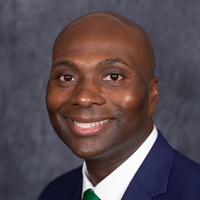 New research led by Ledric Sherman, an assistant professor of health and kinesiology at Texas A&M University, notes that the high usage rates of smartphones by African American men could be used to decrease racial disparities in healthcare for this group.
New research led by Ledric Sherman, an assistant professor of health and kinesiology at Texas A&M University, notes that the high usage rates of smartphones by African American men could be used to decrease racial disparities in healthcare for this group.
“The health disparities that describe the population health outcomes for Black men in the United States have garnered much attention, and yet the story remains the same,” Dr. Sherman said. “Consequently, many Black men avoid primary health care and therefore do not benefit from the preventive care services offered.”
False assumptions, stereotypes, and abuse are just a few of the wide-ranging issues that contribute to disparities in life expectancy, escalated disease morbidity, and increased mortality for Black men. “The impact of racism, whether actual or perceived, is tangible to many Black men when considering risks and benefits of seeking health care,” Dr. Sherman added.
Dr. Sherman hopes the accessibility of digital health technologies can begin to bridge the gap between Black male patients and health care providers. He said the task of building better clinical relationships may seem daunting, but is worth it if it means that Black men will get the care they need to live healthier and longer lives.
For diabetes management, prototype socks and shoes with thermal and pressure sensors, can identify areas of the feet with insufficient blood supply. “Potentially, a physician could use this type of technology to routinely inspect minor tissue damage and greatly minimize the risk of amputations.” Other promising technologies are wrist and hip accelerometers, GPS, mobile technology apps for weight loss, apps for dietary self-monitoring, internet weight loss programs, and behavioral intervention technologies.
“What is needed are interventions that show promise across other racial/ethnic groups, based on co-design strategies that prove to engage and empower Black men to make healthy choices around the management of their chronic illness,” Dr. Sherman said.
Dr. Sherman holds bachelor’s and master’s degrees from Sam Houston State University in Huntsville, Texas. He earned a Ph.D. at Texas A&M University.
The full study, “Building Better Clinical Relationships With Patients: An Argument for Digital Health Solutions With Black Men,” was published in the journal Health Services Insights. The article was co-authored by Stuart W. Grande of the School of Public Health at the University of Minnesota. It may be accessed here.












